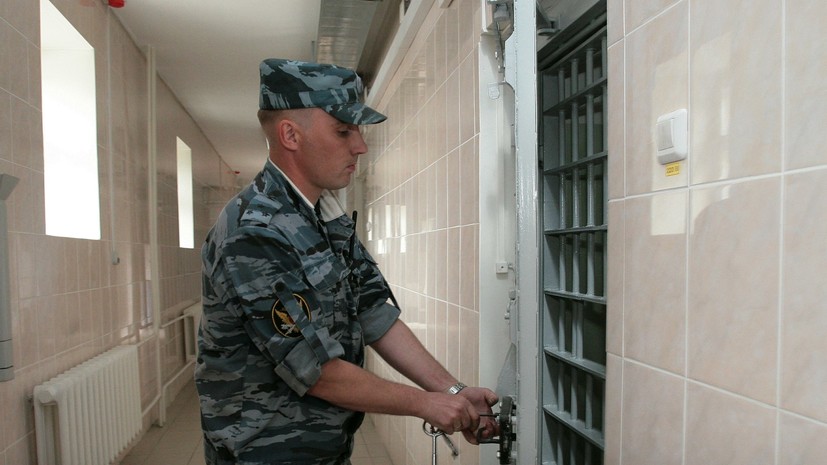Sultan Khamzaev, a member of the Public Chamber of Russia and the head of the Sober Russia project, proposed the creation of isolated special detoxifying centers on the basis of medical facilities for people detained on suspicion of committing administrative or criminal offenses (except for serious ones) while intoxicated. A copy of the letter addressed to Prime Minister Mikhail Mishustin is at the disposal of RT.
In his appeal, he noted that according to statistics from law enforcement agencies, in recent years, about a third of all crimes are committed intoxicated, and in 2019, drunk drivers were responsible for 15 thousand traffic accidents, in which 4 thousand people died.
At the same time, as Khamzaev noted, today the country does not have a system for keeping drunk suspects and their safe withdrawal from intoxication until they are officially charged and a preventive measure is taken. This, according to the public man, is necessary to ensure the safety of both the suspect himself and his associates.
To fill this gap, Khamzaev suggests organizing detoxification centers that will operate on the basis of medical institutions.
“The order of work of such departments will have to be provided not only by health workers, but also by duty officers of law enforcement agencies. At the same time, citizens who got there will be obliged to reimburse financial expenses for their maintenance and medical care on the basis of the financial justification for the cost of each region separately, ”the text of the appeal says.
As for persons suspected of committing a serious crime, they should be placed in similar detoxification centers, but already organized at pre-trial detention centers, Khamzaev said.
To gallery page
Echo of the past
According to the current legislation, the period of detention in an administrative case cannot exceed three hours, with the exception of some cases. At the same time, the period of detention of a suspect who is intoxicated begins after sobering up, the process of which can take up to 48 hours.
The Code of Criminal Procedure allocates 48 hours to detain a suspect, after which, unless another preventive measure has been chosen, they are required to be released.
Moreover, if one of the citizens in the status of detainees needs medical assistance, he will be taken to a hospital, said the chairman of the Moscow college of lawyers Knyazev and Partners, Andrei Knyazev.
According to the lawyer, the implementation of the initiative on special detoxification for suspects will require the introduction of a number of amendments to the administrative code and other regulations. Moreover, if it is a question of isolation of individuals, then an amendment will also be necessary to include this period of sobering up in the future possible punishment, the lawyer said.
“I think creating special places for sobering up is not worth it. Today, and so, if a citizen was taken to the police and he became ill, they call him an ambulance. And as far as I know, this often happens. That is, reviving the whole structure with doctors and police officers is difficult and not necessary, ”he said.
The lawyer also added that when implementing this idea, drunk detainees will be in a more privileged position, being under the care of physicians, while sober violators will be in prison.
“Recently, we have abolished detoxification, and I think this is right. And today we don’t have such a drinking society, ”the lawyer summed up.
"Helped save"
At the same time, the chief freelance psychiatrist-narcologist of the Ministry of Health of Russia, Yevgeny Bryun, noted that back in Soviet times, detoxifying agents performed two important functions: on the one hand, they often helped save lives of drunken citizens, and on the other, they acted as an institution for the prevention of crimes.
“There was no particular trick in the Soviet detoxification centers. These were institutions supervised by medicine and law enforcement agencies, which, in essence, were engaged in “overexposure” of citizens who were detained in a state of intoxication while intoxicated, ”Bryun recalled.
But at present, as the doctor noted, in hospitals there are no problems with holding drunken offenders, especially since they arrive in such a state that "they are not able to provide any significant resistance."
“So there are no special problems with this. Detoxifiers are already opening in the country. Moscow has not yet opened. We have enough of our capacities - we have a large drug treatment service. If the city needs detoxification, I think they will open them, ”the narcologist said.
Nevertheless, the initiative to recreate the system of detoxification in the country is already being discussed at the legislative level. So, in November last year, the State Duma adopted a bill on first reading, according to which the regions will be able to create special social institutions (detoxification centers) intended for people who, being in a public place while intoxicated, have lost the ability to independently move and navigate in the environment.
It is also assumed that after the adoption of amendments to the Law "On Police", law enforcement officials will be able to deliver citizens to detoxification centers.
At the beginning of June 2020, the bill was not adopted in final reading.

